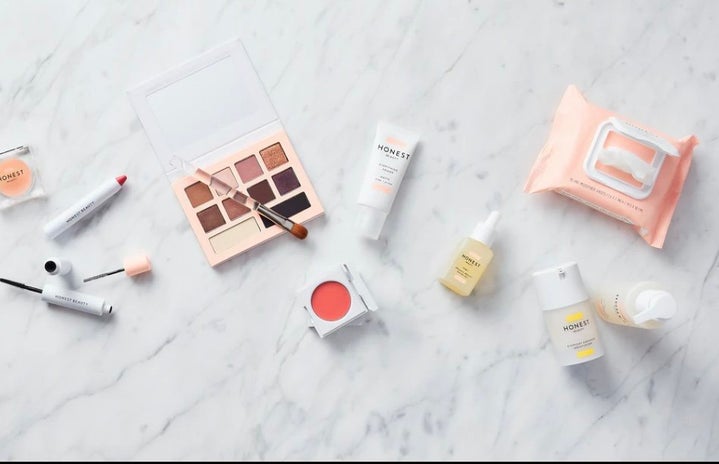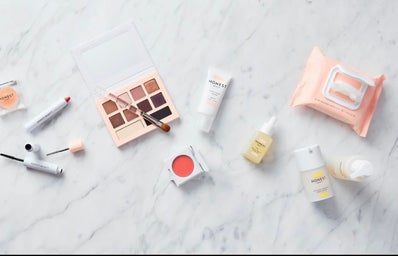I’ve had some sort of acne on my face since I was about 11 years old. Since then, I’ve tried everything. I’d go to Walgreens and pick out colorful bottles with enticing claims. But nothing really worked. That is… until recently. I fell down a rabbit hole of videos by professional dermatologists on YouTube, and I was hooked. YouTubers like Dr. Dray and Dr. Sam Bunting are licensed dermatologists offering free advice on their channels. They have videos teaching viewers how to develop a skincare routine, as well as different tips, tricks, and products to use. Here’s what I’ve learned:
1. Skin Types Aren’t Real
When you walk through the skin care aisle at your local drugstore, you’re confronted with creams and washes for “sensitive skin,” “oily skin,” “dry skin,” etc. While formulas are adjusted slightly for each product, these “skin types” are really just a marketing ploy for skincare companies to sell the same product in multiple varieties. Don’t worry too much about identifying your particular skin type, just try different products to find what works best for you.
2. Fragrance-Free is the Way to Go!
Before you buy any sort of skin care product, flip it over and read through the ingredients list. Lots of times, you will find “fragrance” as one of the ingredients, and this is important to take note of. There is truly no reason for skin care products to have scent, as no one is going to be smelling your face anyway. If your skin is sensitive like mine, these fragrances can be irritating as well. Try to look for products labeled Fragrance-Free, just to prevent any sort of unnecessary irritation.
3. Oily Skin Needs Moisture Too
If you have oily skin like mine, you may think you don’t need to apply moisturizer. I thought that my skin’s natural oil was enough. What I didn’t know is that applying moisturizer can actually make oily skin less oily! Supplying your skin with increased moisture means that your skin will produce less oil on its own over time, and can slowly contribute to fewer clogged pores and less acne.
4. Apply Moisturizer to Wet Skin
This one surprised me the most! I had no idea, but it turns out that moisturizers work best when applied to damp skin, such as right out of the shower or right after washing your face. The lotion dries with the water onto your face, actually locking some of that moisture right into your skin. Fascinating, right?!
5. Always Wear Sunscreen, Even Inside
I knew wearing sunscreen was important, but I had no idea how important! On days where I stayed home, I used to forego sunscreen. It turns out that UV rays from windows and even digital devices are enough to cause microscopic damage to your skin! This may not have a very noticeable impact, but wearing sunscreen daily no matter what also just gets you in the habit. Plus, sunscreen can also act as a moisturizer. Wearing a higher SPF means that you will be protected from the sun for a longer period of time. For example, SPF 30 means that your skin will be protected from the sun 30 times longer than it would be without any sunscreen. So, if you’re going to be outside all day, try an SPF 50 just in case!
6. Gentle Cleansers Will Remove SPF Sunscreens
I don’t know if it’s just me, but I always thought I needed to use a foaming, scrubby, facial wash to remove SPF sunscreen at the end of the day. It turns out a gentle cleanser like Cetaphil is actually good enough to do the job! Makeup remover followed by a gentle facial cleanser is enough to clean your face at the end of the day, no harsh scrubbing necessary. Just don’t forget to moisturize when you’re done!
Overall, I couldn’t be happier with this new information. Red, pimply skin is hard to deal with. It can wreck your confidence and get in your head, but seeking help through dermatologists and fancy treatments can be expensive and time-consuming. YouTube’s variety of videos by professional dermatologists can be extremely helpful, and I hope you check them out when you get a chance!





